Child sexual abuse doesn’t just scar your skin, it scars your soul. The physical wounds might heal with time, but the wounds that have been inflicted in your soul, hardly ever do. An adult survivor of child sexual abuse knows exactly how this feels.
The list of negative effects of child sexual abuse is long. But if you want to learn how to love yourself and build self-esteem after trauma, you certainly can.
Sexual abuse is one of the most traumatic things that can happen to a child. If it happened to you, you live with one of its worst after-effects: low self-esteem.
Feeling bad about yourself is a terrible thing to live with.
When you’ve been sexually abused, this feeling might be with you constantly along with the trauma and low sense of self-worth.
There are endless ways to feel worthless. A voice in your head keeps finding fault with you. Self-doubt, even self-hate, is the albatross you wear around your heart.
Self-hate interferes with everything. You don’t have confidence at school, work, and especially in relationships with people, even with friends. You probably blame yourself.
That is part of how child sexual abuse affects the self-esteem of victims as they grow into adults.
Good self-esteem begins in babyhood — with parents who respond to your cries, make you feel safe, look at you with affection, smile at you, hold you, comfort you when needed, and make you feel loved.
Parents that allow you the freedom to explore are there to pick you up when you fall, make you know you can depend on them, and don’t tell you what’s wrong with you.
In fact, good self-esteem grows from a safe and secure environment — from safe and secure parents who see who you are, are proud of you, support your strengths, and help you when you’re struggling, who believe that “you can do it!!
Related: Child Sexual Abuse: Understanding The Dynamics And Signs Of Sexual Abuse In Children
These are parents who never violate your safety or boundaries. And, they don’t take from you something that doesn’t belong to them.
When you don’t have those kinds of parents, then you learn there’s no one to trust.
That is why sexual abuse is a betrayal of trust.
It makes you feel unsafe everywhere, leaving you with deep scars. And if your abuser is a parent, then this is a true violation of the relationship you needed to trust the most.
How can you trust anyone after being molested by someone who should have protected you?
When you can’t trust your parent to take care of you in all the ways a child needs, then it shakes your entire world. It leaves you with deep doubts about people and yourself.
Most likely, your family wasn’t a place where you had the kind of support you needed. Maybe, in addition to the sexual abuse, there was neglect or physical abuse as well. Maybe, you grew up feeling that no one put you first.
No one had your emotional needs or best interests at the forefront of their minds. You felt no one really cared.
So, even if your abuser wasn’t a parent, you didn’t have anyone to turn to. And, since there was no one to trust, you lived with it in secret. Maybe you’ve lived with it in secret your whole life.
And, maybe you’ve had no help with all the worrying doubts and questions that still affect your self-esteem.
Thus, the questions, doubts, and feelings haunt you.
Whether you’re aware of the psychological trauma or have done your best to push them out of your mind, they’re a part of what makes you feel bad about yourself.
Sexual abuse is not only violating, but it’s also confusing. The person that abused you never accepts responsibility. And, there you are, feeling it all. Mostly, you’re stuck with the worry, thinking to yourself, “Was it my fault?”
But, your traumatized self is also left with other questions and doubts embedded in all your attempts to have relationships and in your difficulties with them. You wonder, “Shouldn’t I have stopped it? Do people just want to use me?”
Or, you can’t have real intimacy and worry about what you can do about that. You feel shame all the time, don’t believe anyone can love you for you, and mostly you worry whether you can ever trust love. If there is any way to ever feel good about yourself.
You want to change it and you can.
Here are the 8 heartbreaking thoughts brought by the trauma from the effects of child sexual abuse.
8 Heartbreaking Thoughts You Face As An Adult Survivor of Child Sexual Abuse
1. “Was it my fault?”
No, it wasn’t your fault. But, wondering if it was is a very frequent fear, especially if you were abused by a loved and needed parent or relative.
All children need are love and affection. So did you. You needed to be touched, hugged, and held. But, when a grown-up goes over the line, it’s terribly confusing.
Maybe you were lonely and deprived. You needed more. And, you might have been told, “This is special.” Or “It’s our little secret, just between you and me.” If you were torn between wanting some special attention and feeling that something just wasn’t right, this can lead to self-blame and doubt about whether it was your fault.
You needed help, but what could you do? No one was there to be counted on. You might even have been threatened with something awful happening to you if you told.
So, you were stuck and scared. But, still. You torture yourself, “Why didn’t I stop it?”
2. “Shouldn’t I have stopped it?”
You couldn’t stop it. It wasn’t your responsibility. That’s the reason it’s called sexual abuse. You were being abused, taken advantage of, and mistreated.
There wasn’t anything you could do about it. Adults are bigger, have more power and authority, and either entice you with presents or promises or they threaten you.
It’s important to know that you were not only being abused. You were in a negligent environment. No one protected you.
You grew up feeling you had to be more grown-up than they were. And, because there was no one to count on, you had to take care of yourself. And, this feeling that you were an adult before you were ready, led to an over-developed sense of responsibility.
Even when you were the one being abused, you think you should have been stronger, the one in charge, and able to stop it. But, you were little and scared and couldn’t.
And, now you can’t trust anyone not to use you.
Related: Child Sexual Abuse: 5 Reasons Why You Should Reveal It
3. “People just want to use me.”
Believing that people want to use you is a feeling you probably live with constantly. That is a common after-effect of sexual abuse. You were used.
You might even feel that the only way to get people to like you is to be the one that gives. You’re afraid of wanting or taking.
If this is you, you likely find yourself in relationships that not consciously repeat the feeling that people only want to take from you, and not give. To feel repeatedly used, and to be afraid of it happening over and over, is a big part of being unable to trust.
You weren’t taken care of as a child or protected, and now it is very difficult to believe that anyone would want to. You need love, but don’t expect it. If you feel the only way to get anything is to give; then it’s hard to open up.
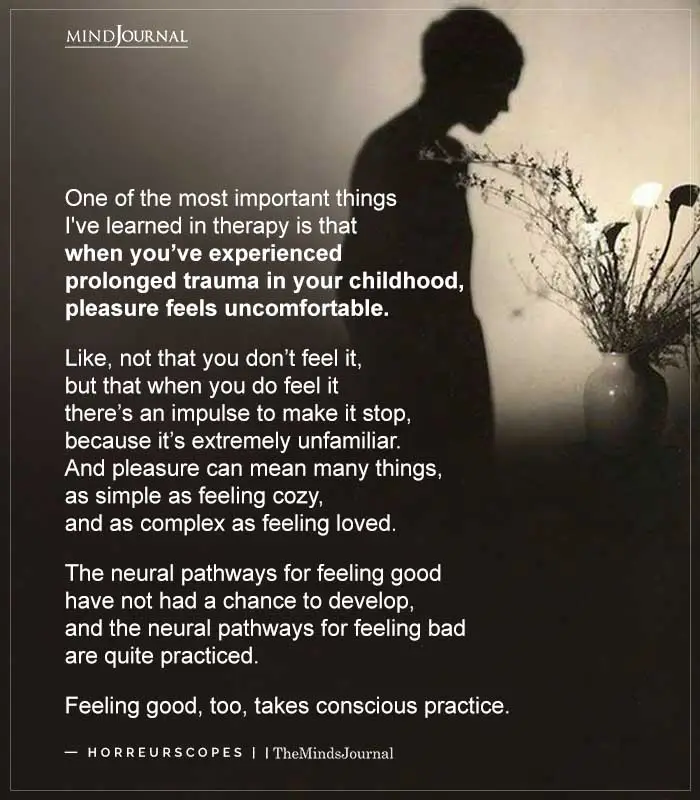
4. “I can’t have real intimacy.”
Real intimacy, whether it is emotional closeness or sexual, requires trust. Children need to trust that touch is safe and those touching them aren’t abusing that trust.
That wasn’t your experience. For you, touch was intrusive, confusing, violating, and it hurt you. Adults should never touch a child, sexually. So, now no touch feels safe at all.
You live with the question, am I being used? Any intimacy brings up this question. You’re not sure who to trust. You may have chosen the wrong relationships.
But, even with someone who can be trusted, that person can easily turn into a molester in your mind when you try to open up.
So, even though a need for touch, affection, and sex is normal, you’re afraid. You stay closed off. Or if you love someone and try to open up, you can’t relax and enjoy it. You can’t let go. You’re tense, no matter how hard you try. And, you feel a lot of shame.
5. “I feel shame all the time.”
Shame has lived inside you for too long. It seems like it defines who you are. And, you believe there are real reasons for shame. Even though there’s not.
You might live with the feeling there’s something disgusting about you. You link the shame to what happened to you long ago, particularly if you blame yourself.
This is part of self-hate. You mostly hate your needs. You’re not supposed to need or want anything — like love. If you do, you think you’ve exposed something awful. Your needs for love are confused with being abused.
Deep down inside, you wonder if it was your fault. So, if you need anything, you feel you’re doing something wrong to show this part of yourself.
Now, you even berate yourself for things that weren’t (or aren’t your fault). Even if you find yourself in difficult or unwanted situations as an adult or teenager, it still isn’t your fault. These early traumas live inside you.
And, when you’ve been sexually abused or had any childhood trauma, one of the after-effects is to have experiences that seem to repeat the early feelings and fears.
Shame is the reason you’ve had to keep secrets, to close off normal needs and desires, and to live a life of hiding. You don’t really believe that none of it was your fault. Now, you don’t believe you are lovable.
6. “No one could love me for me.”
You want love and you’re sure you won’t get it. Or, you believe that love will hurt you. You bend over backward to give more than you receive. But, nothing ever seems like enough. Or you keep your walls up and stay away.
When you live in hiding, it’s because you can’t expose who you are for fear you that the real you isn’t lovable. That is the you that wants and needs love and care.
The real you is the little child living inside you. The one who has been hurt. Feeling that no one can love you is excruciating. When you live with the belief that people want to use you, it’s not safe to show your real self and be hurt again.
You don’t believe you are lovable because no one in childhood made you feel you were. And, being sexually used and betrayed only reinforced the feeling that you aren’t. Or that you can only be “loved” for what you give.
Plus, being sexually abused is probably not the only childhood abuse you suffered. You may have been criticized, neglected, or made to feel you were wrong or not good enough in other ways too. All of this negatively affects your self-esteem.
Now, you have those same voices in your own head, piled on top of your shame. If you feel unlovable and couldn’t trust love as a child, is trusting love even possible?
7. “Is it possible to trust love?”
Yes, it is possible to learn to trust love. Ordinarily, it takes psychotherapy to help you work out all of the ways that sexual abuse has affected your trust and your self-esteem.
Trusting love now is not only hard because you couldn’t trust love as a child. It’s impossible to trust love when you live with a voice inside that says you aren’t lovable. Or that you are being used.
Psychotherapy also means trying to trust. And, that isn’t easy when you’re afraid. Or if you’ve tried psychotherapy, maybe many times, and it didn’t help. You’re still living with the effects of your sexual abuse.
You may not have had psychotherapy with an expert who understands sexual abuse. Or one that could allow you to feel, in the sessions, the kind of distrust and fear you live with. That’s both necessary and important.
So, how should psychotherapy help you? And what kind of therapy is the best for the ways that sexual abuse affects self-esteem? You need a kind of psychotherapy that gets to the not-conscious roots of your shame and helps build your self-esteem. That’s usually a psychoanalytic psychotherapist.
Related: 6 Strategies to Help You Teach Your Child About Consent
8. “Will I ever have better self-esteem and how?”
You can definitely learn how to build confidence and have better self-esteem. No question, sexual abuse damages your good feelings about yourself as much as it damages trust. Self-love is almost impossible.
But, if you choose a psychotherapist who specializes in sexual abuse and understands not only its conscious effects but also what you can’t know about yourself, you can learn to trust and you can feel lovable.
This means working out all the ways it’s difficult to trust. And, the ways that distrust will inevitably find its way into therapy.
You need a therapist that first helps you build trust by understanding all the ways you can’t and don’t. A therapist that then creates a space where you can safely explore and work out your self-blame, feelings of shame, and the fears that anyone you get close to is a molester.
When you have this kind of therapy, you will begin to feel much better about yourself, relationships will feel safer, and you’ll learn that you are lovable.
Life can change for the better.
Want to know more about child sexual abuse? Check this video out below to know more about how you can heal from child sexual abuse.
Written by Sandra E. Cohen, PhD Originally appeared in Yourtango
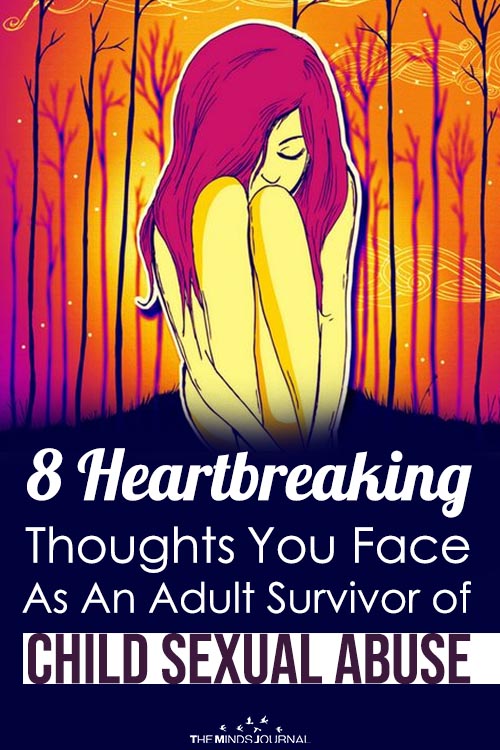
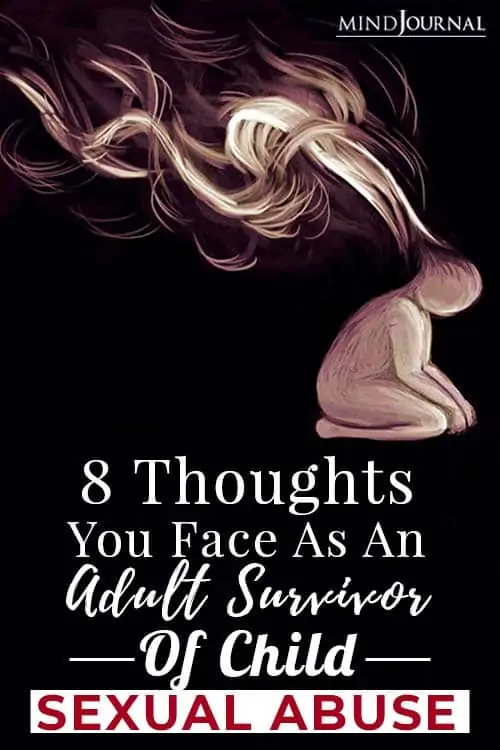
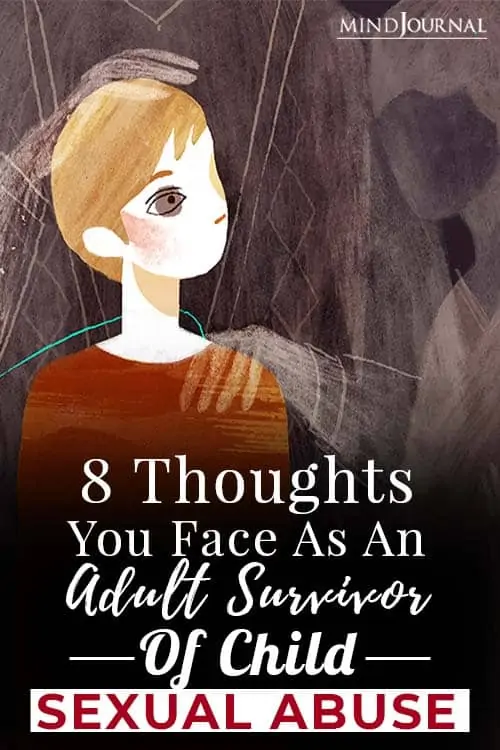
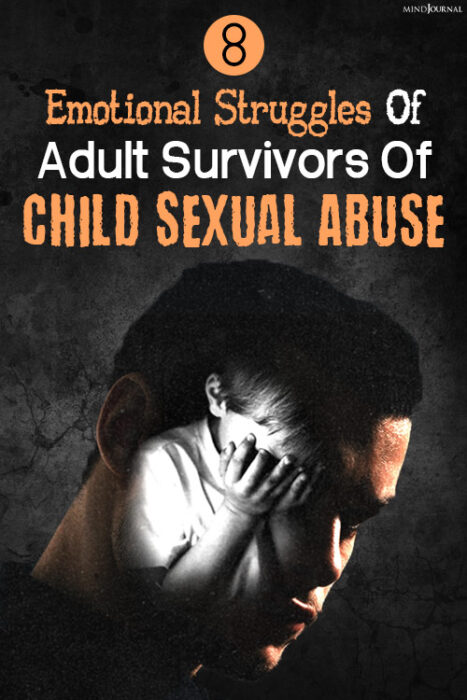
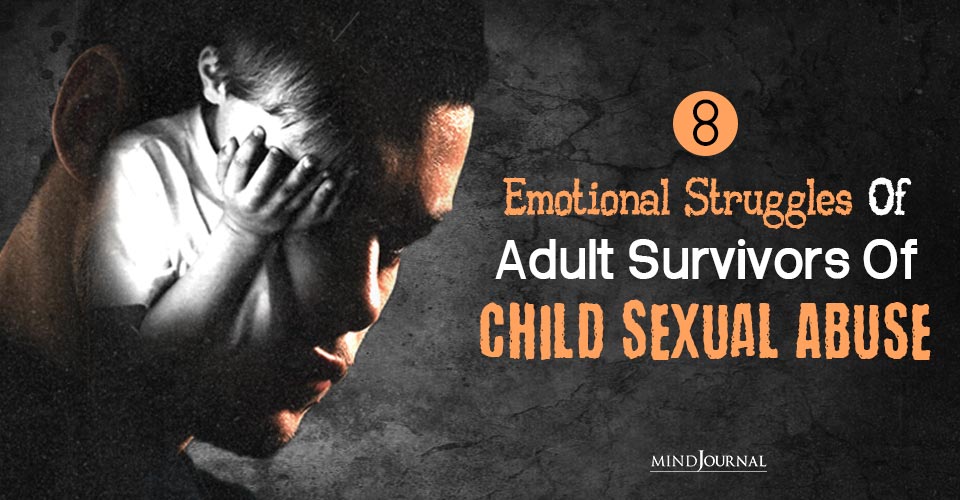







Leave a Reply
You must be logged in to post a comment.